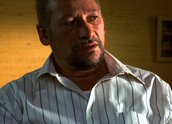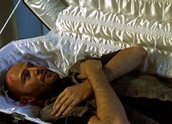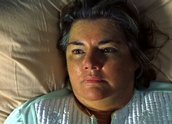


Soft Fruit (1999)
Synopsis
In the shadow of the steel mills of Port Kembla, the four children of Patsy and Victor Petrov gather at the family house, which is surrounded by fruit trees. Patsy (Jeanie Drynan) is dying of cancer, but the family has already been ruptured by Victor’s violent temper. Josie, the eldest (Genevieve Lemon), has returned from the United States with her two children. Nadia (Sacha Horler) also has children but her marriage has dissolved. Vera (Alicia Talbot), the youngest, has put herself on an unofficial fertility program at the local hospital, where she’s a nurse. Bo (Russell Dykstra) has been paroled from prison because of his mother’s illness, but he has to sleep in the shed. Victor (Linal Haft) won’t allow his son in the house, because of their long-standing feud. Patsy is determined to enjoy her last days with her family. Bo takes her to select a coffin and to her favourite secluded beach. She shares her liquid morphine with Nadia and Bo and dreams of flying to Paris, like her idol, the late Jackie Onassis. In the end, she only gets as far as a local caravan park, where she dies, surrounded by her daughters.
Curator’s notes
Soft Fruit is a comedy drenched in grief and family conflict – it would be a tragedy if it were not so funny and peculiarly affectionate. The sense of place is very important – the house is within a few kilometres of the steel mills of Port Kembla, south of Sydney, and the ‘acid rain’ that Victor explains is killing his fruit trees suggests a possible darker link to Patsy’s illness.
An ‘eternal flame’ burns over the mill, like a giant church candle, and there are a number of religious references because Mrs Petrov has a strong Christian faith. That is perhaps not a surprise given the brooding and violent nature of her husband, an eastern European migrant who thinks nothing of slapping his daughter for laughing at him (clip one), or having a full-scale fist fight with his son Bo, the most troubled of the four children (clip three). Even with his temper, the women seem used to Victor’s outbursts, and they are quick to forgive him. The three daughters are also quick to fight with each other, because the battles of childhood have never really gone away. All that prevents a complete family meltdown is Patsy’s illness, and her determination that her last days are to be played out on her terms.
The film becomes less determinedly comedic as the illness worsens, and more surreal. Patsy’s liquid morphine hallucinations push the film into a more melancholy space, although she’s not the only one using the medication. After Bo’s big fight with his father, (clip three), he returns to the ones he calls his ‘real family’ – the biker gang whose clubhouse is a kind of fortress. He is so drunk and stoned after a night with his mates that he misses the final drama, his mother’s death.
The film was the debut feature of writer-director Christina Andreef, and it’s dedicated to her mother, Agnes Catherine Andreef. It’s a potent mix of extreme behaviour and extreme character in an extreme situation. This produces some entertaining comedy, but the film’s most powerful moments are about the pain within the family history. As different and quirky as these characters all are, they are convincing as a family unit, partly because Andreef is so truthful about their capacity to wound each other. They bruise easily, as the tagline says.
- Overview
- Curator’s notes
- Video 3 clips
- Principal credits
- Find a copy
- Make a comment
- Map
- Add your review



